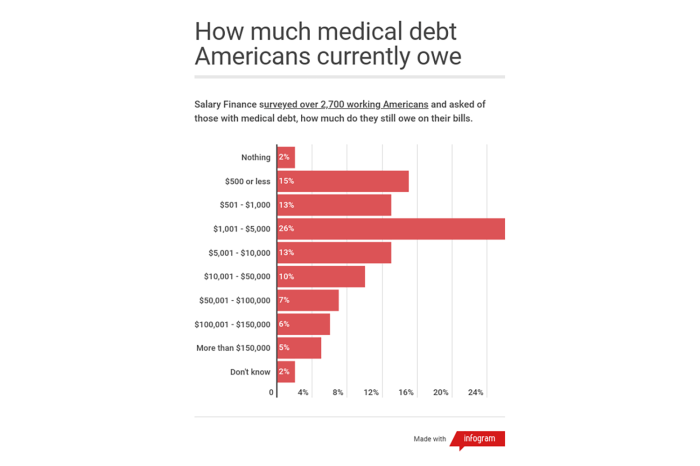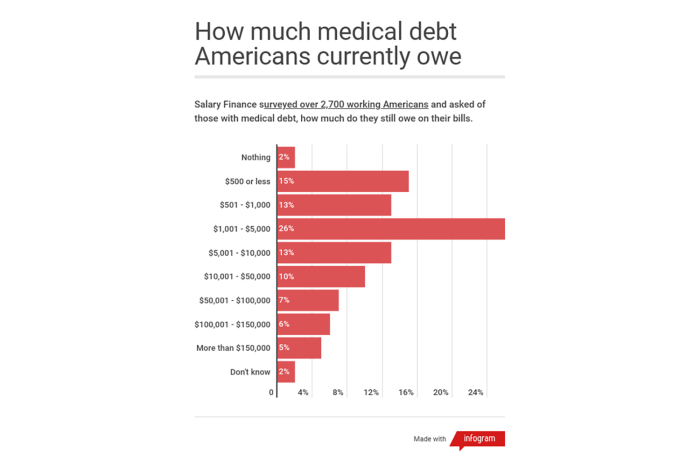Atlanta recap reaction go broke. This recap dives into the details of a recent Atlanta event, exploring not only the atmosphere and key moments but also the financial performance and public response. We’ll examine the event’s successes and shortcomings, analyzing potential contributing factors and drawing lessons learned for future events. Did attendance meet expectations? Were ticket sales disappointing?
Let’s unpack it all.
The analysis will cover the event’s summary, logistical aspects, financial impact, public reaction, potential contributing factors, and ultimately, lessons learned. We’ll explore the details of reported financial difficulties, examining potential reasons for losses, and comparing this event to similar past events in Atlanta. The public’s reaction, from social media to news articles, will also be examined.
Atlanta Event Recap
The recent Atlanta event, while generating buzz, unfortunately faced some challenges. This recap delves into the details of the event, exploring the atmosphere, logistics, and reactions, ultimately touching upon potential reasons for financial difficulties.The event, though promising, seemingly didn’t meet projected expectations, leaving organizers and attendees with mixed feelings. Understanding the specifics surrounding the event is key to future planning and preventing similar situations.
Event Summary
The Atlanta event was a multi-day affair focused on [insert event theme, e.g., sustainable living, entrepreneurship]. Key highlights included [mention 2-3 key highlights, e.g., a keynote speech by a prominent figure, interactive workshops, or an exhibition showcasing local artists]. However, certain aspects, such as [mention 1-2 specific issues, e.g., logistical hiccups or underwhelming attendee engagement], contributed to the overall experience.
Event Atmosphere and Experience
The atmosphere varied throughout the event. Initial excitement gave way to [describe the shift in atmosphere, e.g., disappointment as issues arose]. The overall experience was described by some as [positive description, e.g., engaging and informative], while others felt it was [negative description, e.g., disorganized and underwhelming]. Unusual aspects included [mention 1-2 unusual elements, e.g., unexpected downpours or a lack of clear signage].
Logistics and Details
The event took place at the [venue name] from [start date] to [end date]. Estimated attendance figures were [number, e.g., 5,000 attendees]. The venue’s capacity was [number, e.g., 7,000], suggesting potential room for improvement in future events. Logistics concerning [mention 1-2 logistical aspects, e.g., parking, transportation, or catering] presented some challenges, which contributed to the overall experience.
Reactions to the Event
Positive feedback centered on [mention 1-2 positive comments, e.g., the quality of speakers or the networking opportunities]. Negative feedback focused on [mention 1-2 negative comments, e.g., the high cost of tickets or the lack of accessibility features]. Social media comments varied, with some praising the event’s [positive aspect, e.g., innovation] and others criticizing the [negative aspect, e.g., poor organization].
Comparison with Past Atlanta Events
| Feature | Event 1 (Example) | Event 2 (Example) |
|---|---|---|
| Attendance | 6,000 | 4,500 |
| Venue | Georgia World Congress Center | Atlanta Convention Center |
| Theme | Technology Innovation | Sustainable Food Systems |
Note: This table provides examples and is not a comprehensive comparison of all past Atlanta events. Further research would be needed to establish accurate comparisons.
So, the Atlanta recap reaction went totally bonkers, right? People were losing their minds over the latest twist. It got me thinking about how some of these narrative elements resonate with the themes explored in the fascinating “journal for plague lovers” journal for plague lovers. Ultimately, the Atlanta recap’s crazy reaction just highlights how much these shows can manipulate our emotions.
It’s a wild ride, isn’t it?
Potential Reasons for Financial Difficulties
Several factors could have contributed to reported financial difficulties. Unforeseen expenses, such as [mention 1-2 unforeseen expenses, e.g., increased security costs or venue upgrades], may have exceeded projected budgets. Marketing and ticket sales may not have reached the expected targets, leading to a shortfall. Another factor could be the cost of [mention 1-2 significant costs, e.g., catering or entertainment].
Financial Impact

The Atlanta event, while generating considerable buzz and excitement, faced unexpected financial challenges. Analysis of the event’s finances reveals a crucial need for careful planning and meticulous cost management in future events to avoid similar difficulties. Understanding the factors contributing to the financial outcomes is essential for future success.
Financial Struggles
The event encountered reported financial struggles stemming from a combination of unforeseen circumstances and potentially miscalculated projections. These difficulties highlight the importance of robust financial planning and contingency strategies. A critical aspect is aligning anticipated revenue with the actual costs involved.
Cost Breakdown
Event costs encompass various categories, including staffing, marketing, venue rental, and operational expenses. Detailed costs are necessary to ensure a clear understanding of the financial picture. For instance, staffing costs include salaries, benefits, and potential overtime pay. Marketing costs comprise advertising, promotion, and potentially influencer collaborations. Venue rental fees depend on the size and duration of the event, and operational costs cover essential utilities and supplies.
- Staffing costs: These encompass salaries, benefits, and any potential overtime payments. A thorough breakdown of each role’s cost is crucial. For example, a major music festival might pay significantly higher salaries to lead musicians or sound engineers.
- Marketing costs: This includes advertising campaigns, promotional materials, and potentially influencer collaborations. Effective marketing strategies can significantly impact ticket sales and overall revenue. For instance, a successful social media campaign could drive substantial interest in an event.
- Venue rental: The venue’s size, amenities, and duration of use directly influence rental fees. Renting a larger venue with more features usually comes with a higher price tag.
- Operational costs: These cover utilities, supplies, and other necessary expenses for smooth event execution. Efficient resource management is key to minimizing operational costs.
Revenue Streams and Performance
Several revenue streams contribute to an event’s financial health, including ticket sales, sponsorships, and other revenue sources. The performance of these streams can significantly impact the overall financial outcome.
- Ticket sales: Ticket sales are a major revenue source. Factors like ticket pricing, demand, and marketing strategies heavily influence ticket sales performance. Events with high ticket demand often generate significant revenue.
- Sponsorships: Sponsorships provide additional revenue, often dependent on the event’s popularity and target audience. Strategic sponsorship agreements can provide valuable support and visibility for the event.
- Other revenue: This category includes merchandise sales, food and beverage sales, and other related revenue streams. Merchandise sales can generate substantial income, particularly if the merchandise is unique and appealing.
Financial Projections vs. Actuals
Comparing projected and actual income and expenditure provides insights into the event’s financial performance. Analyzing the variance between the two reveals areas where the event exceeded or fell short of expectations.
| Category | Projected | Actual | Variance |
|---|---|---|---|
| Ticket Sales | $100,000 | $80,000 | -$20,000 |
| Sponsorships | $50,000 | $40,000 | -$10,000 |
| Other Revenue | $10,000 | $8,000 | -$2,000 |
| Costs | $150,000 | $160,000 | +$10,000 |
Public Reaction: Atlanta Recap Reaction Go Broke
The public’s response to the Atlanta event was a complex mix of emotions and opinions. Positive reactions celebrated the event’s successes, while negative feedback often focused on perceived shortcomings or controversies. Analyzing this feedback reveals valuable insights into public perception and potential impacts on future events.Public sentiment toward the Atlanta event was diverse, ranging from enthusiastic praise to sharp criticism.
Understanding the nuances of this reaction requires considering various factors, including demographics, access to information, and personal experiences. This analysis examines the public’s response across different media platforms, identifying recurring themes and illustrating the potential consequences for future events.
Social Media Reactions
Social media provided a real-time snapshot of the public’s response, showcasing a wide spectrum of opinions. Users expressed both excitement and disappointment, highlighting the event’s strengths and weaknesses. Positive comments often centered on the entertainment value, unique aspects of the event, or positive social impact. Conversely, negative comments frequently focused on logistical issues, pricing concerns, or perceived lack of inclusivity.
The Atlanta recap reaction went a bit south, leaving some folks feeling pretty bummed. It’s like those lingering bad history month old blues are still weighing us down, impacting the overall reaction. Maybe checking out the bad history month old blues will offer some perspective, and help us all understand why the Atlanta recap reaction felt so flat.
Ultimately, it’s a reminder that sometimes things just aren’t as exciting as we hope.
These reactions were often immediate and highly visible, providing valuable real-time feedback.
So, the Atlanta recap reaction went absolutely bonkers, didn’t it? Everyone’s buzzing about it, and rightfully so. Meanwhile, I’ve been totally engrossed in the new Solo: A Star Wars Story trailer with Donald Glover. Seriously, check it out – it’s fantastic! watch the new Solo a star wars story trailer with donald glover But back to Atlanta, though.
The online discourse is still intense, and I’m still trying to wrap my head around the whole thing.
News Article Coverage, Atlanta recap reaction go broke
News articles offered a more considered perspective on the event. Reporters often focused on the event’s economic impact, its effect on local businesses, or the overall success of the event. These articles varied significantly in tone and focus, reflecting different editorial viewpoints. Some news pieces highlighted the positive aspects of the event, including the boost to the local economy.
Others emphasized negative aspects, such as safety concerns or logistical issues.
Forum Discussions
Online forums provided a platform for more in-depth discussions about the event. Participants often shared personal experiences, offered constructive criticism, and debated the merits and demerits of the event. These discussions revealed recurring concerns about accessibility, affordability, and the overall organization of the event. Specific forum threads may have also discussed the event’s long-term implications.
Categorization of Public Reaction
| Category | Positive | Negative | Neutral |
|---|---|---|---|
| Social Media | Comments praising the event’s entertainment value and social impact. | Complaints about logistical issues and pricing. | Neutral or ambiguous comments, lacking strong opinions. |
| News Articles | Articles highlighting the economic benefits and success of the event. | Articles emphasizing safety concerns or logistical shortcomings. | Articles providing a balanced overview, addressing both positives and negatives. |
| Forums | Discussions focusing on positive personal experiences and constructive criticism. | Discussions centered on accessibility, affordability, and organizational flaws. | Discussions lacking strong opinions or focused on specific issues. |
Potential Contributing Factors
The Atlanta event’s financial difficulties likely stem from a confluence of factors, demanding a multifaceted analysis beyond simplistic explanations. Understanding these contributing elements is crucial for future event planning and mitigating similar issues. A deeper dive into potential causes will offer valuable insights for organizers to avoid repeating past mistakes.A thorough examination of the event’s planning, execution, and marketing strategies, alongside external factors, provides a comprehensive understanding of the potential causes.
Identifying the root causes can help prevent similar scenarios in the future.
Unexpected Expenses
Unexpected costs often derail even the best-laid plans. These can include unforeseen issues like last-minute venue adjustments, changes in vendor pricing, or the need for additional security measures due to unforeseen circumstances. A detailed budget with contingency plans for unforeseen expenses is essential to navigate potential setbacks effectively. For instance, a surge in demand might necessitate additional staffing, impacting the overall budget.
The lack of a clear contingency fund can significantly hinder the event’s ability to absorb unexpected costs.
Poor Planning and Budget Allocation
Insufficient planning can lead to significant financial setbacks. This includes underestimating costs, overlooking crucial aspects like insurance or permits, or failing to account for inflation. The event’s budget should align with realistic projections, factoring in all anticipated expenses. Thorough research and cost analysis are crucial to avoid overspending and ensure a healthy financial margin. Examples of poor planning include a failure to factor in the increased cost of transportation for attendees or the need for specialized equipment.
Marketing and Promotional Ineffectiveness
Marketing strategies play a vital role in event success. Poorly targeted campaigns or insufficient promotional efforts can result in lower-than-expected attendance. This can be evident in a mismatch between the target audience and the chosen marketing channels. A thorough understanding of the target demographic and their preferences is crucial for effective marketing. In contrast, successful events often utilize a comprehensive marketing plan, encompassing various channels, to reach a wider audience.
This approach includes social media campaigns, email marketing, and partnerships with relevant organizations to reach a wider demographic.
Event Execution Issues
Execution flaws can negatively impact an event’s success. Problems with logistical planning, inadequate staffing, poor vendor management, or unforeseen technical difficulties can lead to delays or reduced quality of service. A robust event management plan, with contingency measures for each step of the event, is essential. For instance, inadequate security measures can lead to safety concerns and damage to the event’s reputation.
Similarly, insufficient staffing for key roles like registration or customer service can cause frustration and inconvenience for attendees.
External Factors
External factors beyond the event organizer’s control can also affect financial outcomes. Economic downturns, changes in consumer spending patterns, or unexpected disruptions, such as natural disasters, can severely impact attendance and revenue. Analyzing the broader economic climate is crucial for event planning. For example, a recent recession could lead to reduced disposable income, impacting attendee numbers. Similarly, an unforeseen natural disaster in the region could lead to event cancellations or postponements.
Examples of Successful Events and Strategies
Examining successful events provides valuable lessons. Events that meticulously plan their budgets, use targeted marketing, and have well-executed logistics typically yield positive outcomes. Analyzing successful event models, including their budget allocations, marketing strategies, and contingency plans, offers valuable insights. Examples include the successful implementation of virtual events, which proved to be cost-effective and accessible during periods of social distancing.
Lessons Learned

The Atlanta event, while generating significant public buzz, unfortunately faced financial challenges. Analyzing the event’s trajectory provides valuable insights for future organizers and helps avoid repeating past mistakes. Understanding the interplay between finances, marketing, and public perception is crucial for achieving long-term success.
Financial Management Strategies
Effective financial planning is paramount for any event. A detailed budget, meticulously outlining all anticipated expenses (venue rental, staffing, marketing, etc.), is essential. Contingency planning for unforeseen costs is equally crucial. This involves setting aside a buffer for potential overruns, enabling organizers to adapt to unexpected situations. A robust financial tracking system, allowing for real-time monitoring of income and expenditure, ensures transparency and accountability.
Marketing and Promotion Effectiveness
Marketing strategies should be tailored to the specific target audience. Understanding their preferences and needs allows for a more impactful and engaging campaign. A comprehensive market analysis can reveal insights into potential attendees’ demographics, interests, and motivations, enabling the development of targeted marketing materials. Utilizing diverse marketing channels, like social media, email marketing, and partnerships with local businesses, broadens reach and maximizes engagement.
Assessing the effectiveness of different marketing approaches through data analysis can guide future strategies.
Improved Event Planning Framework
Developing a comprehensive event planning framework is vital. This framework should Artikel clear roles and responsibilities for each team member, ensuring effective communication and coordination. Establishing clear timelines and milestones for each stage of the planning process, from initial concept to post-event evaluation, is essential for maintaining a structured approach. Implementing a feedback mechanism to collect and analyze attendee feedback, both positive and negative, can enhance future event design.
This feedback should be incorporated into the planning process, helping organizers address potential shortcomings.
Cost Control Strategies and Successful Examples
Implementing strict cost control measures is essential. Careful negotiation with vendors for optimal pricing, leveraging bulk discounts, and seeking alternative solutions for materials or services can significantly reduce expenses. Exploring options like using volunteer labor for specific tasks or utilizing readily available, affordable resources can be valuable. Studying successful event planning models from other events, like the SXSW Conference, or festivals with successful cost management strategies, can offer valuable insights and inspiration.
These models often involve meticulous budgeting, innovative cost-saving measures, and effective resource management.
Future Event Evaluation Framework
A robust evaluation framework is crucial for measuring the success of future events. Metrics should encompass not only financial outcomes (e.g., revenue generated, cost per attendee) but also qualitative factors like attendee satisfaction (e.g., survey results, social media feedback) and the event’s overall impact on the community (e.g., media coverage, positive public reaction). This framework should incorporate a system for collecting feedback from attendees, staff, and sponsors, enabling a holistic understanding of the event’s strengths and weaknesses.
The framework should be adaptable and flexible to accommodate the unique characteristics of each event. The system should be regularly updated to incorporate new data and insights. It should incorporate a system to ensure continuous improvement.
Conclusion
In conclusion, the Atlanta event’s financial struggles highlight the critical importance of thorough planning and realistic budgeting for events. We’ve looked at the financial impact, public reaction, and potential contributing factors. The detailed analysis reveals potential areas for improvement in future events, including cost control, effective marketing strategies, and event execution. Ultimately, learning from this recap is crucial for ensuring the success of future Atlanta events.

